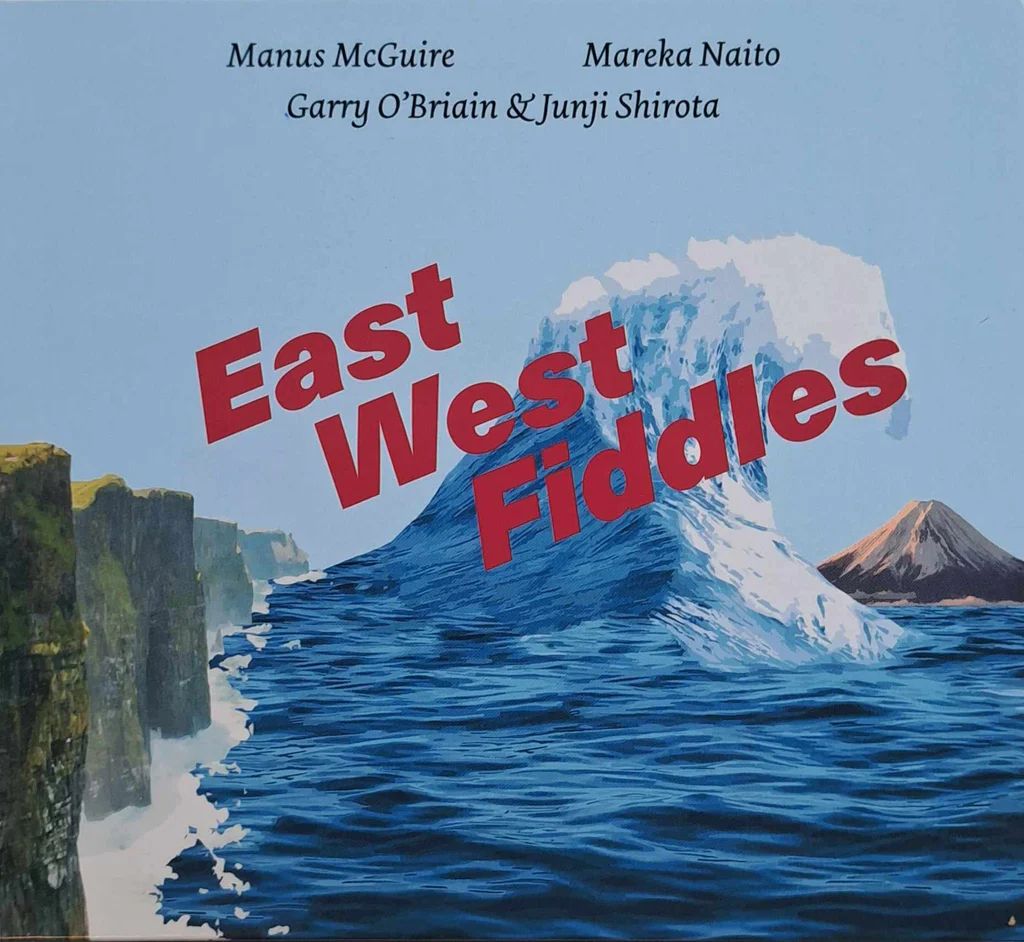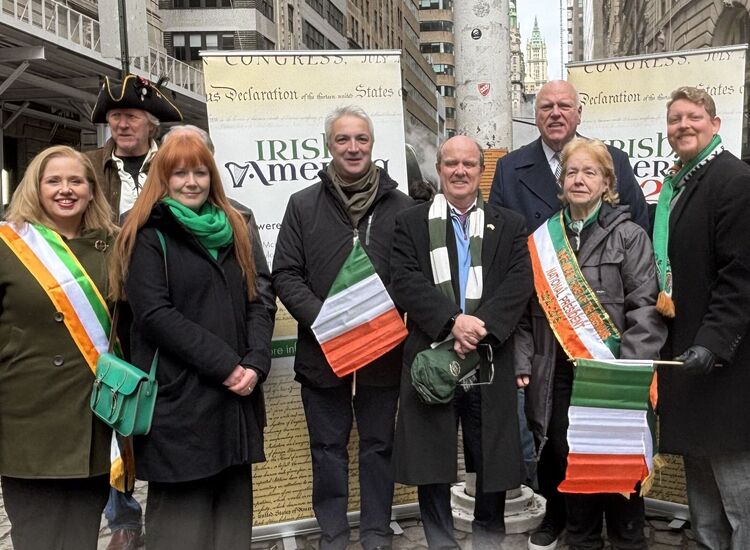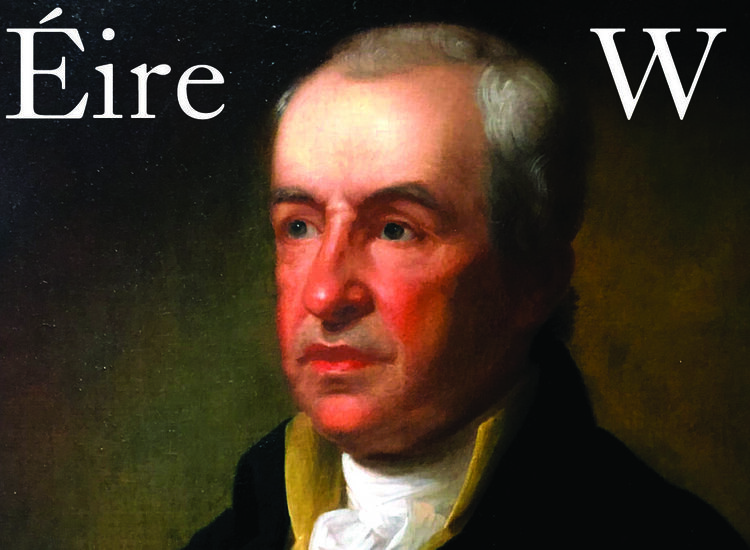Is there anything Manus McGuire does that isn’t interesting? From bands like Buttons and Bows, Moving Cloud, Brock McGuire Band and Full Tilt, to solo efforts like “Fiddlewings” and “The Copperplate Sessions,” everything McGuire's involved with seems to come from a special place, one filled with a robust artistic vision. And the same must be said of “East West Fiddles,” his new project with Mareka Naito, Junji Shirota (https://www.marekanaito.com/), and Garry O’Briain. It’s a gorgeous album of creatively rendered traditional music that is very easy to enjoy.
McGuire (fiddle), who was born in Sligo but is now a resident of East Clare, is an award-winning musician and outstanding composer. He’s a legend in traditional music, as is O’Briain (guitar, mandocello, bass, vocals), who has been a member of such celebrated groups as Buttons and Bows, Skylark, and The Boys of the Lough. Regular readers of this column are surely well acquainted with this pair.
Naito (fiddle, concertina) and Shirota (guitar, 5-string banjo, mandolin), on the other hand, would probably be lesser known to Irish traditional audiences. Shirota, who grew up singing Japanese folk songs, has played bluegrass music professionally since 1973 and Irish traditional music since 1986, when he first settled in San Francisco and became a part of the music there, and over the decades he has recorded over 35 albums, most of them in Japan. Naito, who grew up in Japan but now lives in Galway, comes from a very extensive classical background, having won numerous national and international competitions as a young person and beyond. She found Irish traditional music in 2007, plays harp and concertina in addition to the fiddle, and has made two previous albums with Shirota, “Listening to the Outside World” and “Just a Hunch.”
Naito and Shirota are well known on the trad scene in Japan and have toured there with many visiting Irish musicians, including Gerry O’Conner, Cormac Begley, Edel Fox, Paddy Keenan, Frankie Gavin, Noel Hill and Brendan Begley among others. It’s intriguing that the two crossed musical paths with McGuire and O’Briain, as the four make a compelling quartet, as this album shows.
There are some lovely, fairly straight ahead tracks here. “Bow Legged Tailor / …” and “Garech's Wedding / …” are two fine examples, but the one that really stands out to me is “Kitty O’Shea’s,” a virtuoso barn dance played wonderfully here – McGuire and Naito sound great together. Another is “Coleman's March / Angeline The Baker,” a pair of American tunes that date to the 19th century. There, Shirota takes the lead on the first tune on the banjo, with the ensemble coming in in familiar style on the second.
But with each musician here having a few instruments to offer and wide ranging tastes, the stylistic possibilities are wide. In fact, I find that the tracks enhanced by these possibilities are the ones that really stand out. For example, the classic Coleman pairing “Lord McDonald's / Ballinasloe Fair” starts off in familiar territory, with the two fiddles firing away at the melody in session style. But the track really takes flight when Shirota comes in on the banjo. It’s a subtle, old timey addition, but one that transforms the character of the music in a positive way. “Poppy Leaf / …” is another. It has a bit of a gypsy jazz underlay that adds flair to the traditional melodies and gives real lift when each musician takes a solo break.
“Hamabe No Uta (Song Of The Seashore) / Planxty Fitzgerald” is really nice as well. The first tune is a Japanese folk song and the second a composition of harpist Michael Rooney, a gorgeous outside-the-box pairing that works beautifully. The arrangement, which leans heavily on guitar and mandolin at first and shifts to something more fiddle-forward, is compelling and well played.
Garry O’Briain provides vocals on a couple of tracks here, as well. Listeners with a bit of a classic taste will be delighted by his take on “I Don’t Want to Set the World of Fire,” which resonates stylistically with the Ink Spots’s 1941 recording. His rendering of “How Can I Live At The Top Of A Mountain,” a song many will know from Tríona Ni Dhomhnaill’s version on the Bothy Band’s album “Afterhours,” is superbly done as well.
McGuire did a great thing to link with Naito and build this project out, as “East West Fiddles” is an album that I think Irish music fans will take a real shine to. This is high class music played by thoughtful, well-rounded musicians. An excellent album for the collection and one lovers of traditional music will want to take a close listen to. To learn more about this or any other of McGuire’s projects, visit https://www.manusmcguiremusic.ie.









